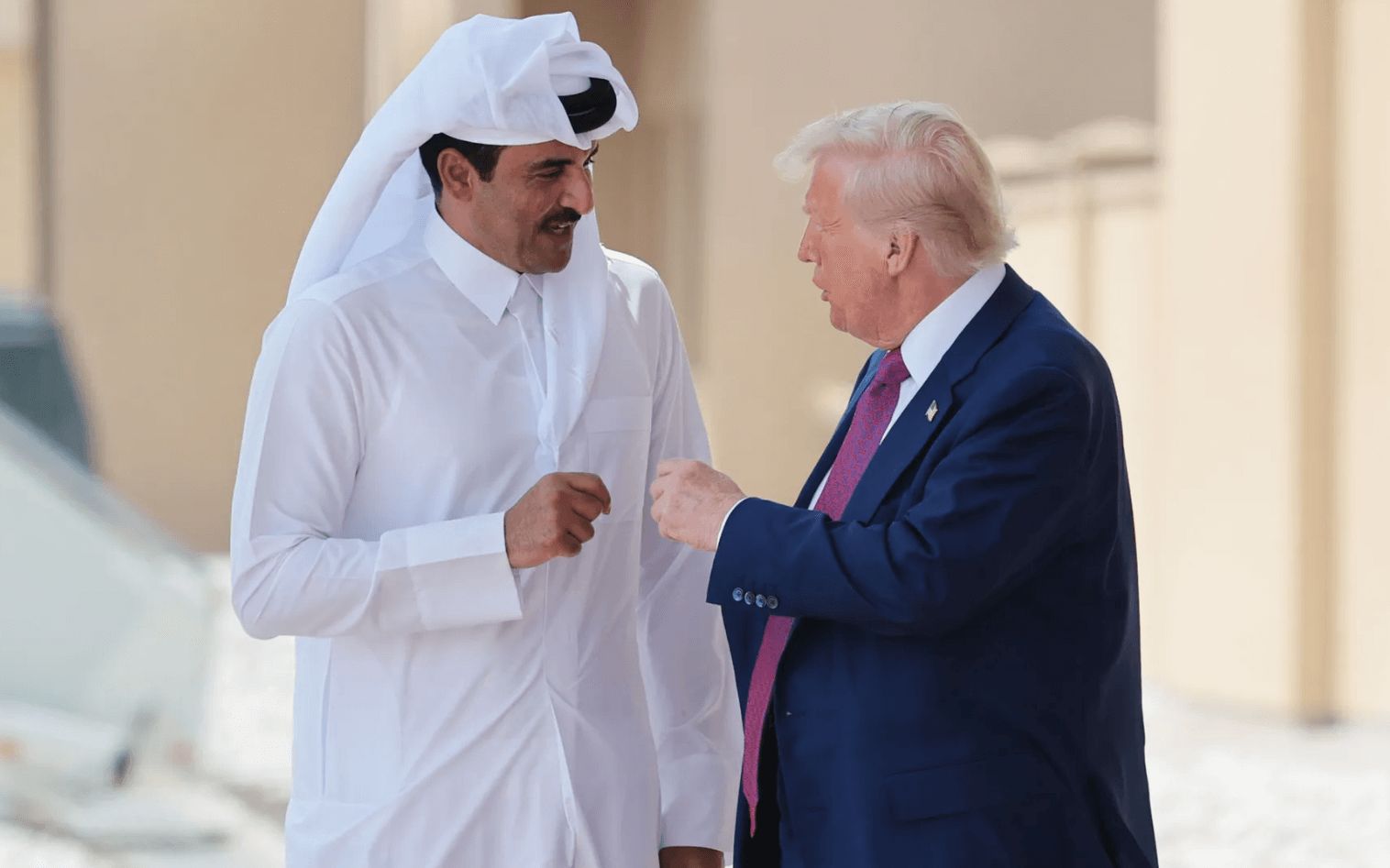- Conservative Fix
- Posts
- Trump Grants Security Guarantee to Qatar After Israeli Strike on Hamas Leaders
Trump Grants Security Guarantee to Qatar After Israeli Strike on Hamas Leaders
Executive order sparks conservative backlash as Trump reassures Arab ally amid Middle East power shift.

In a move shaking up traditional Middle East alliances, President Donald Trump signed an executive order formally granting Qatar a U.S. security guarantee just days after an Israeli airstrike killed top Hamas leaders inside the Qatari capital of Doha.
The order, dated September 29, declares that any attack on Qatar's territory, sovereignty, or critical infrastructure would be considered a threat to U.S. peace and security. The bold directive signals a major strategic pivot, offering Qatar the kind of defense assurance typically reserved for NATO members and longstanding Western allies.
“The United States shall take all lawful and appropriate measures including diplomatic, economic, and, if necessary, military to defend the interests of the United States and of the State of Qatar,” the order reads.
The move came just hours after Israeli Prime Minister Benjamin Netanyahu met with Trump at the White House and reportedly apologized to Qatar’s leadership for the precision strike that eliminated Hamas operatives hiding in Doha.
Behind the scenes, Trump orchestrated a trilateral call between Israeli and Qatari leaders, smoothing over tensions and reaffirming U.S. leadership in the region.
“As the President stated, he has assured Qatar that attacks like the recent one will not happen again on their soil,” a White House official told The Daily Wire.
The order lauds Qatar for its cooperation with U.S. forces noting that it hosts America’s largest military base in the Middle East and for its support in advancing Trump’s 20-point Gaza peace plan, which aims to end the war and force Hamas to release Israeli hostages.
“In recognition of this history... it is the policy of the United States to guarantee the security and territorial integrity of the State of Qatar,” the order states.
But while Qatar has played the role of mediator, critics are quick to point out the darker truth.
Qatar has long harbored Hamas leaders, offering them safe refuge and political protection.
It has also been accused of sheltering Khalid Sheikh Mohammed, one of the architects of 9/11.
The regime funds Al Jazeera, a propaganda machine often hostile to Western values.
Qatar pours billions into American universities, supporting far-left and Islamist causes that undermine U.S. sovereignty and culture.
And that’s where the backlash begins.
Conservative voices, including Trump allies, slammed the decision.
“If the leadership of Hamas in Qatar is killed by Israel, are we going to war with Israel?” asked radio host Mark Levin. “Wouldn’t it have been better to condition any military defense of Qatar on some basic requirements?”
Levin pointed to obvious non-negotiables extradite Hamas terrorists, cut off funding to Islamist networks, and end subversion on American soil.
Laura Loomer echoed the concern. “Every single day, Qatar floods our country with billions of $ of funding for radical left, communist, & Islamist causes... Qatar also financed Iran before they tried to assassinate Trump.”
So why the deal?
Trump sees Qatar as a strategic lever not a friend, but a necessary partner. The Gulf nation has nudged Hamas toward negotiations and offered support for Trump’s peace roadmap. In May, Trump visited Qatar and later accepted a Boeing 747 jet from the Qatari government, intended as a future alternative to Air Force One.
It’s a pragmatic, transactional approach: deliver stability, or else.
But for many conservatives, the concern isn’t what Trump gets from Qatar it’s what Qatar continues to get away with.
The central question is this: Can you trust a country that hosts terrorists to help defeat terrorism? Trump believes the answer lies in leverage. His critics aren’t so sure.
This latest move may deliver short-term regional calm, but it also leaves lingering doubts about who America chooses to protect and why.
Share this with someone who cares about real national security priorities or subscribe to our newsletter now for sharp analysis on U.S. foreign policy in the Trump era.